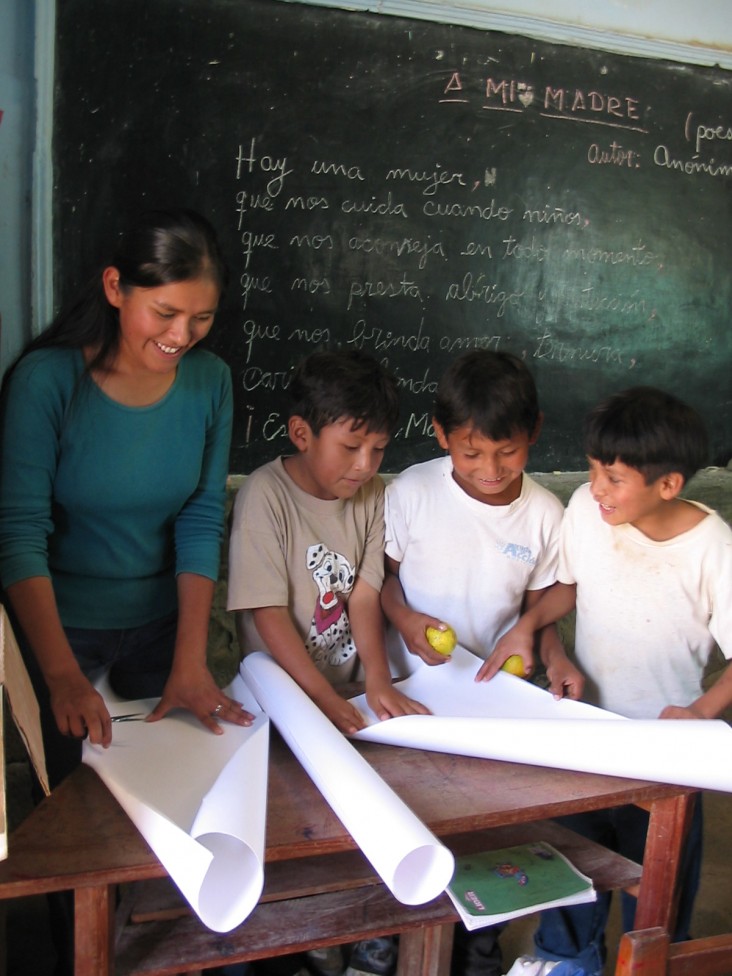
As one of six children, 24-year-old Richard Agramont from the rural town of Machacamarca never dreamed he would be able to attend university. But thanks to a USAID scholarship program, he is now a fourth-year student at Bolivia’s University of Carmen Pampa. For students in the La Paz region who face many barriers to higher education, these scholarships offer them a whole new world.
Starting in 2004, USAID funded 50 scholarships per year as part of a larger development effort in the Yungas region, an area with widespread poverty and high levels of coca production. The program aims to reduce poverty and develop sustainable alternatives to growing coca. Education is widely recognized as a key to achieving lasting social change; it increases opportunities, provides hope for the future, and introduces fresh knowledge and expertise. By enabling young people like Richard to access higher education, the program is giving bright and talented students the tools to lift themselves and their families out of poverty. USAID expects that investing in education will ultimately benefit these poor rural communities by improving their quality of life and increasing their potential for economic development.
The scholarships enable selected students to gain a high quality education and graduate with a four-year bachelor’s degree in one of four areas: nursing, agronomy, veterinary medicine, and primary education. Students are selected based on academic potential and financial need. Upon graduating, participants are encouraged to return to their hometowns to apply their new knowledge and technical skills and to help improve the quality of life for their families and communities.
The scholarships cover tuition, room, board, transport and other incidental expenses. Furthermore, students are encouraged to pursue sports and leisure activities to ensure a well-rounded education that encompasses their physical, mental, social, and academic development. Based on the success of the scholarship model at the University of Carmen Pampa, a similar scholarship program will commence in 2006 in Bolivia’s Chapare region.







Comment
Make a general inquiry or suggest an improvement.